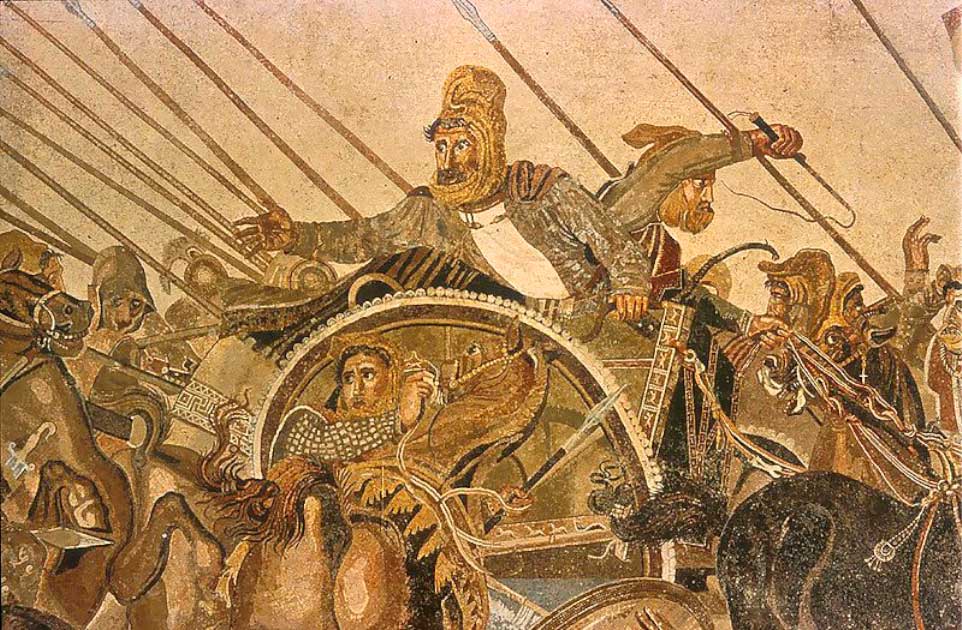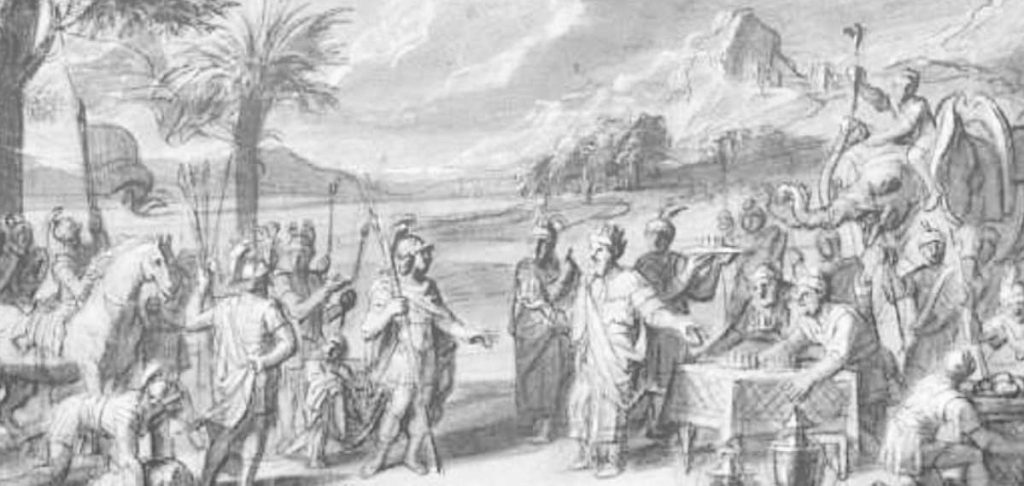Alexander the Great, one of the most successful military leaders of all time, has transcended history to emerge into general awareness, a level of fame very few throughout history have managed. Amongst all the forgotten heroes and emperors, generals and murderers, Alexander is remembered.
Bur for what, exactly? When pressed for a thumbnail sketch of the great Macedon leader, most would note than he won many battles, conquered much territory, was extremely close with his male friend Hephaestion, and died very young.
His fame is without question, but what of his life? How did he earn his place in the public consciousness? Where did he fight, and how did he win?
Here is the life of Alexander, broken down into his most important battles.
1. The Thracians of the Balkans
After consolidating his power by murdering his rivals and surprising an army of Thessaly and forcing their surrender near Mount Olympus, Alexander’s first true test on the battlefield was against Thrace, supposedly a vassal of Macedonia but disinclined to pay tribute to the young leader.
Alexander promptly marched east in early 335 BC, setting out from the city of Amphipolis with his army. Marching into the Thracian territory, he defeated them on the slopes of Mount Haemus, on the banks of the Lyginus river, and finally across the Danube.
However, his victories came with bad news: the Illyrians back to his west were also revolting, along with Athens and Thebes. No problem for Alexander however, who promptly turned his army around and marched back west. After two more battles the Illyrians were once again pacified, and Alexander razed Grecian Thebes to the ground for good measure.
2. Conquest of Persia: Asia Minor
To Alexander’s east lay his great prize: the Achaemenid Persian Empire. Alexander’s father Philip II had fostered a revolt amongst the Greek cities of the Persian empire closest to home, but this fell apart with his murder. Alexander intended to pick up where he left off.

With more than 50,000 soldiers and tens of thousands of supporting workers, Alexander crossed the Dardanelles in 334 BC. When he arrived on Persian soil he plunged a spear into the ground and claimed the empire for himself as a bounteous gift from god.
And his conquest was unstoppable. After defeating the Persians at the Battle of the Granicus and then Halicarnassus, Alexander’s first siege, he took control of all coastal cities and then travelled inland. Both Termessos and Gordian, ancient capitals of the region, fell with limited fighting and Asia Minor was his.
3. Conquest of Persia: Egypt
After a quick tidy up of the region in 333 BC with victories in Issus where he defeated the Persian king Darius and a successful siege of Tyre, Alexander had his sights on the next big conquest: the Persian province of Egypt. It is likely that Alexander had hoped that the fall of Tyre would leave Egypt vulnerable, but he encountered unexpected resistance in his path to the ancient kingdom, at Gaza.
The defenses at Gaza were formidable and Alexander would have to assault the hilltop fort three times and receive a wound himself before it fell. He was merciless with the stronghold which had blocked his path, killing all the men and selling all the women into slavery.
Happily, the Egyptians themselves had seen many foreign pharaohs in their extremely long history, from the dark skinned Nubians of the south to the mysterious semitic pharaohs of Hyksos. Alexander was seen as something of a liberator, and cemented his position as their ruler by respecting their ancient traditions and old gods with sacrifices and donations.
4. Conquest of Persia: Assyria and Babylonia
With Egypt secure and having founded his great city of Alexandria, Alexander was done with the Mediterranean. His path took him next into the heart of the Persian empire itself, and along the way he would meet many illustrious civilizations and bend them all to his will.
The Assyrians, powerhouse of the Old Testament and great empire of the Bronze Age, were encountered and defeated in the Battle of Gaugamela. Darius again led his Persian troops against Alexander at the battle, but his defeat was so humbling that he was forced to flee the field, pursued by Alexander’s cavalry.
After pushing on and capturing the large Persian treasury at Susa, Alexander approached Persepolis herself along the grand Royal Road. Defeating the Persian army at a chokepoint in the Zagros Mountains known as the Persian Gate, he then took Persepolis, got drunk, and accidentally burned down the city.
5. Conquest of Persia: Persia
His capital may have fallen but Darius was still a free man, albeit one with a problematically small army and no home. Retreating east and harried by Alexander’s forces, Darius was finally taken prisoner by one of his own vassals, a Bactrian satrap named Bessus.

Bessus promptly stabbed Darius to death and proclaimed himself as his successor and rightful Persian king. He then ran away and hid in the mountains, conducted a campaign of guerrilla warfare against the Macedonians.
Almost accidentally, in grappling with Bessus Alexander and his forces were dragged all over central Asia. Much of the land they travelled across fell to them, and a string of cities were founded in Alexander’s name, giving the great leader an entire continent to rule.
Bessus was eventually betrayed to Alexander and executed.
6. India
Alexander was now master of an empire which stretched from Greece to central Asia and the Himalayas, but no was not finished. Despite dynastic problems and rebellious provinces in his new empire, he decided to press further east and knock on the door of India herself.

Alexander started in 327 BC by politely asking the nearest rulers to surrender to him. Many refused, but one, Ambhi welcomed him, provided him and his army with expensive gifts and shelter in his city of Taxila.
Ambhi also provided Alexander with passage over the great Indus river into the heartland of the Indian subcontinent, and a base of operations. His route into India secure, Alexander would go on to defeat the Aspasioi, the Guraeans, and the Assakenoi as he marched onwards.
Finally, at the Battle of the Hydaspes River Alexander would defeat the great King Porus. Ambhi himself brought 5,000 men to aid Alexander in battle, and Alexander was so impressed with the bravery of Porus that he made him his vassal.
7. A Life Well Lived
The conquest of India, which saw Alexander rule an empire that crossed Europe and Asia, would be the last of Alexander’s great conquests. He would die only three years after the Battle of the Hydaspes as he returned towards Macedonia, aged only 32.
Almost his entire adult life was spent on campaign, and many of the ancient civilizations of Asia found themselves in a new era of Macedonian rule. Although his empire quickly fragmented after his death, as is so often the case, his legacy survives to this day.
In the cities he founded, in the armies and the cultures he conquered, Alexander changed the face of the ancient world. His life was spent in battle, and he won almost everywhere he went.
Top Image: Alexander the Great spent almost his entire adult life campaigning. Source: Justinas / Adobe Stock.
By Joseph Green